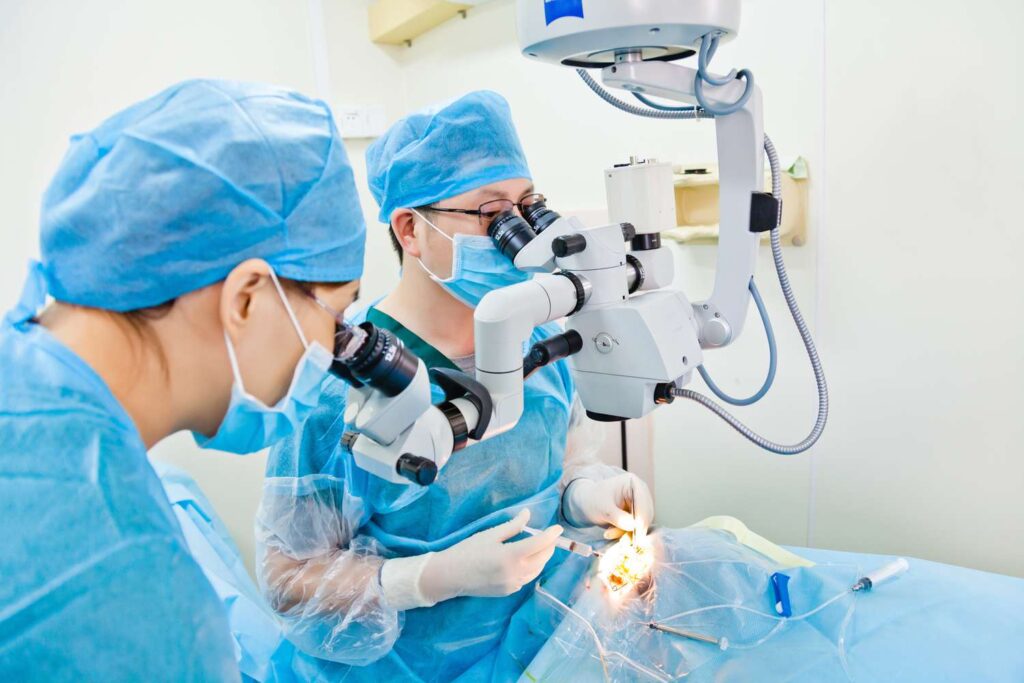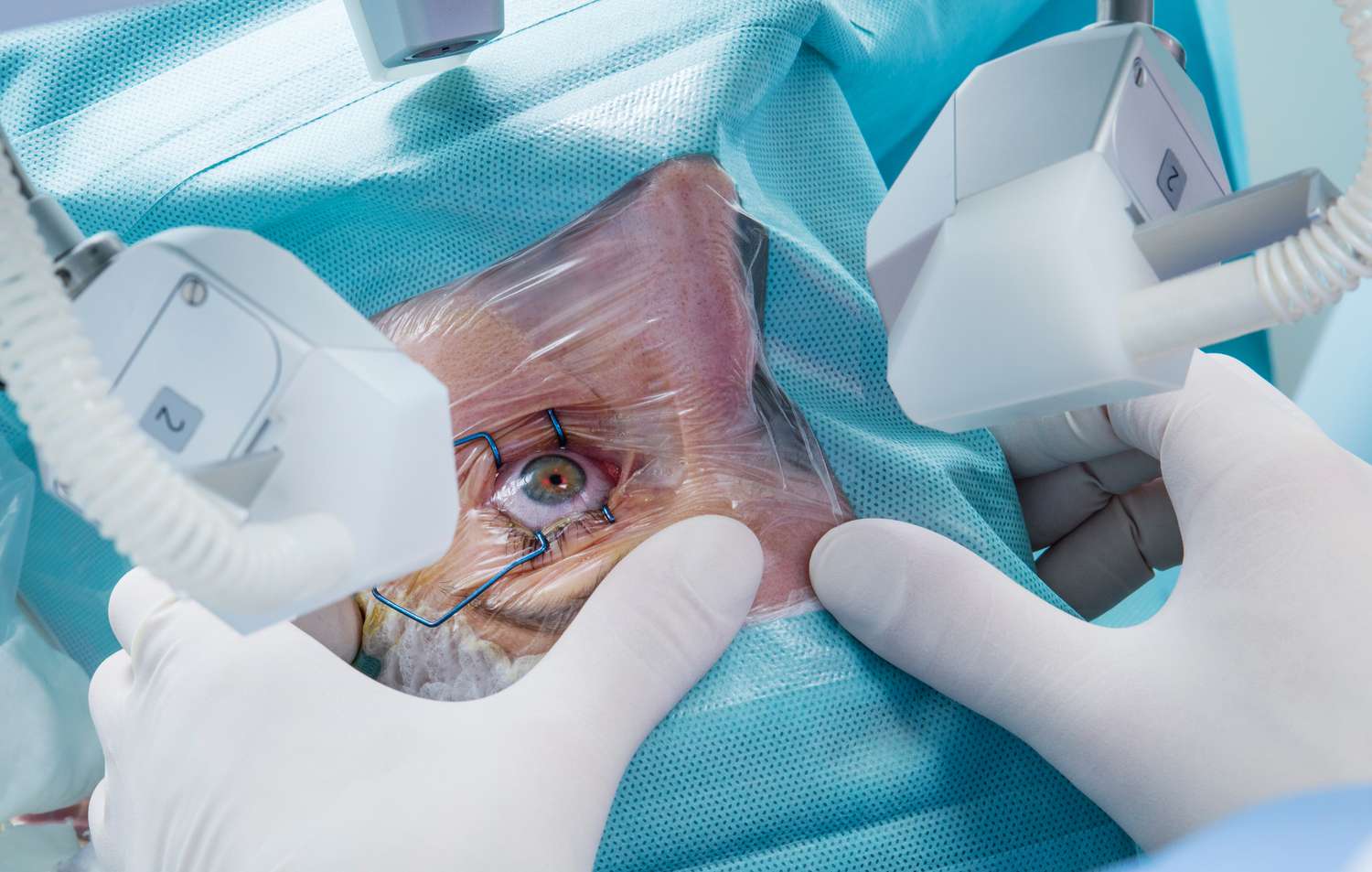Understanding Cataract Surgery
Cataract surgery is a common and generally safe procedure aimed at restoring clear vision to individuals affected by cataracts, which are cloudy areas in the lens of the eye. These cloudy lenses can significantly impair vision, making daily activities challenging. This guide will help you navigate the process of finding the best cataract surgery options available to you.
What is Cataract Surgery?
During cataract surgery, the cloudy lens is removed and usually replaced with a clear artificial lens, known as an intraocular lens (IOL). The procedure typically takes less than an hour and can be performed on an outpatient basis, meaning you can go home the same day. Most patients experience significant improvements in their vision shortly after the operation. Finding the best cataract surgery near me involves careful consideration of the surgeon’s experience, available technology, and patient reviews, as well as understanding the financial aspects of the procedure. By following the guidelines laid out in this article, you can make informed decisions that lead to positive surgical outcomes and improved quality of life.
There are primarily two techniques used for cataract surgery: phacoemulsification, which uses ultrasonic waves to break up the cloudy lens, and extracapsular surgery, which involves making a larger incision to remove the lens. The choice of technique depends on several factors, including the severity of the cataract and the surgeon’s preference.

The Importance of Quality Cataract Surgery
Quality cataract surgery is crucial for achieving the best possible visual outcomes. Complications can arise from surgery performed with outdated technology, inadequate preparation, or insufficient surgical skill. Therefore, it’s vital to prioritize finding a well-respected and experienced surgeon who utilizes advanced techniques and equipment.
Ultimately, the quality of your cataract surgery will affect not only your vision but also your overall quality of life. With proper care, many patients report a return to normal activities, such as reading, driving, and participating in outdoor activities without glasses or contact lenses.
In addition to the surgical procedure itself, the pre-operative assessment plays a significant role in the success of cataract surgery. Patients undergo a thorough eye examination, including tests to measure the eye’s shape and size, which helps determine the most suitable type of IOL. This personalized approach ensures that the chosen lens aligns with the patient’s lifestyle and visual needs, whether they require correction for distance, near vision, or both.
Post-operative care is equally important in the recovery process. Patients are typically given specific instructions on how to care for their eyes, including the use of prescribed eye drops to prevent infection and reduce inflammation. Regular follow-up appointments are also essential to monitor healing and ensure that the new lens is functioning as intended. Many patients find that their vision continues to improve in the weeks following surgery, making it a truly transformative experience.
Factors to Consider When Choosing a Cataract Surgeon
When searching for the best cataract surgeon, there are several important factors to take into account that can significantly impact your surgical experience and outcomes.
Surgeon’s Experience and Expertise
The experience of your cataract surgeon is one of the most critical factors to consider. Surgeons who specialize in cataract surgery and have performed thousands of procedures often achieve better outcomes. It’s prudent to ask potential surgeons about their qualifications, years of experience, and the number of surgeries they have performed.
Furthermore, board certification in ophthalmology is an essential credential that signifies a surgeon’s adherence to the highest standards of eye care. Don’t hesitate to inquire about the surgeon’s success rates with cataract surgeries, as this information is valuable in making an informed decision. In addition to their surgical experience, consider whether the surgeon is involved in ongoing education and training, as advancements in techniques and technology are continually evolving. Surgeons who attend workshops and conferences often bring the latest knowledge and skills to their practice, which can enhance your surgical experience. Read more about technology on https://www.open.edu/openlearn/science-maths-technology/engineering-technology/what-technology
Technology and Equipment Used
The technology and equipment a surgeon utilizes for cataract surgery can greatly influence the procedure’s success and your recovery time. Many modern surgical techniques incorporate advanced imaging systems and minimally invasive instruments that enhance precision and reduce recovery times.
Surgeons utilizing femtosecond lasers for cataract surgery, for example, can perform procedure steps with greater accuracy than traditional methods. Investigating what specific technology the surgeon uses will provide insight into the quality of care you can expect. Additionally, inquire about the type of intraocular lenses (IOLs) available, as there are various options tailored to different vision needs. Some lenses can correct astigmatism or provide multifocal vision, which may reduce the need for glasses post-surgery. Understanding your options will help you make a more informed choice about your treatment plan.
Patient Reviews and Satisfaction
Patient reviews and testimonials can offer a glimpse into the experiences of others who have undergone the same procedure with a particular surgeon. Look for online reviews, or ask for referrals from friends or family who have had cataract surgery.
High patient satisfaction ratings often indicate that the surgeon is not only skilled but also provides excellent care and support throughout the surgical process. Take note of any recurring themes in the reviews, whether they relate to the surgeon’s bedside manner, the office staff’s responsiveness, or the overall surgical experience. Furthermore, consider reaching out to previous patients if possible, as personal conversations can provide deeper insights into what you can expect. Engaging with those who have firsthand experience can help alleviate any concerns and give you a clearer picture of the surgeon’s approach and the overall patient experience.
Preparing for Cataract Surgery
Preparation for cataract surgery involves several steps and is crucial for ensuring a smooth surgical experience.

Initial Consultation and Eye Examination
Your journey towards clearer vision begins with an initial consultation with your chosen surgeon. This visit typically includes a comprehensive eye examination to assess the severity of your cataracts and determine the best surgical approach. During this appointment, the surgeon will also review your medical history and any medications you take.
It’s essential to standardize any eye medications before surgery, as this can influence your recovery. Be open with your surgeon about other health conditions, as these can impact surgical outcomes and the anesthesia required for the procedure.
Discussing Your Surgery Options
Once the examination is complete, your surgeon will discuss the types of intraocular lenses available and which option may be best for you. There are several types of lenses to choose from, including monofocal, multifocal, and toric IOLs. Each type has its pros and cons regarding visual clarity and the need for glasses post-surgery.
In addition to lens selection, discuss any concerns you have and get a clear understanding of what to expect in the days leading up to your surgery, as well as during and after the procedure. Clear communication is key to alleviating anxiety and ensuring that you feel prepared for what lies ahead. Click here to find more about communication.
Pre-Surgery Instructions
Your surgeon will provide specific pre-surgery instructions that you should follow carefully to ensure the best outcomes. Common instructions include avoiding certain medications, fasting the night before, and arranging for transportation to and from the surgery.
Following these instructions closely can help to minimize the risk of complications and increase the likelihood of a smooth experience. Ensure you understand these guidelines and don’t hesitate to ask any questions during your consultation.
What to Expect During Cataract Surgery
Understanding what happens during cataract surgery can help ease any anxiety you may have leading up to the procedure.
The Procedure Explained
Cataract surgery is typically performed under local anesthesia, and in most cases, you will be awake but relaxed during the operation. First, the surgeon will create a small incision in your eye to access the cataract. They will then use ultrasound waves or a laser to break up the cloudy lens, followed by suctioning out the fragments.
Finally, the surgeon will insert the intraocular lens into position. The entire process usually lasts less than an hour, and many patients are often surprised by how straightforward the experience is.
Post-Surgery Care and Recovery
After surgery, you will be moved to a recovery area until the anesthesia wears off. It is normal to experience some blurred vision, mild discomfort, and light sensitivity immediately after the procedure. Your surgeon will provide specific post-operative care instructions, which may include using prescribed eye drops and avoiding strenuous activities.
Most people notice significant improvements in their vision within a few days, though full recovery can take a few weeks. Regular follow-up appointments will be scheduled to monitor your healing and check your vision.
Financing Your Cataract Surgery
Understanding the financial implications of cataract surgery is crucial as you consider your options.
Understanding the Costs
The costs associated with cataract surgery can vary widely based on several factors, including the surgeon’s expertise, the type of lens selected, and the surgical technique used. Generally, patients should anticipate costs that encompass the procedure, follow-up visits, and medications.
It is advisable to have a clear understanding of the total costs involved and ask for a written estimate during your consultation. This estimate will help you see what expenses can be anticipated pre-surgery and help you budget appropriately.
Insurance and Medicare Coverage
Many insurance plans and Medicare cover cataract surgery to varying degrees, often depending on medical necessity and whether you opt for a standard or premium intraocular lens. Contact your insurance provider to understand what your plan covers and what your out-of-pocket costs may be.
Understanding insurance coverage can alleviate stress and help you plan better financially, ensuring that you can undergo the necessary procedure without unnecessary financial burdens.
Out-of-Pocket Expenses and Payment Plans
In cases where insurance does not cover the full costs, many surgeons offer payment plans or financing options to help manage out-of-pocket expenses. Inquire about these options during your consultation, as they can significantly ease financial strain and make the surgery more affordable.
Being proactive about understanding and planning for the costs associated with cataract surgery will allow you to focus on your recovery and eventual return to clearer vision.
Read more at: Everything You Need to Know About Cataracts Surgery in Canberra

